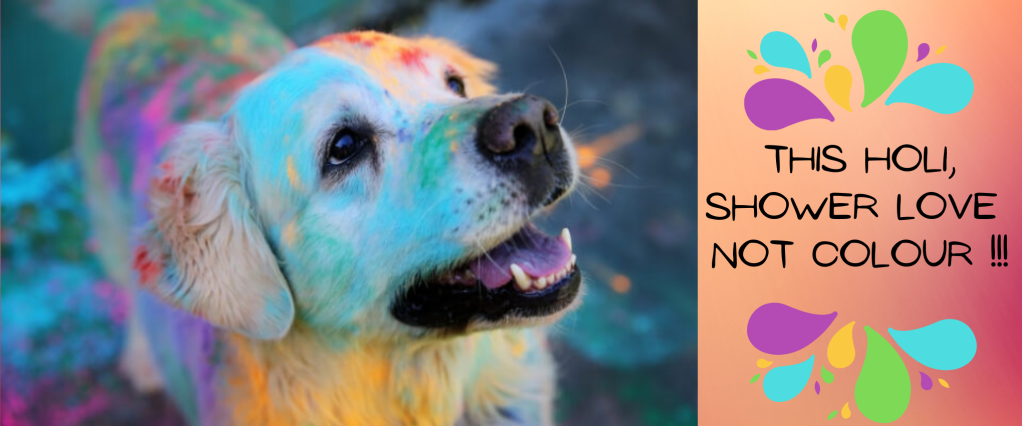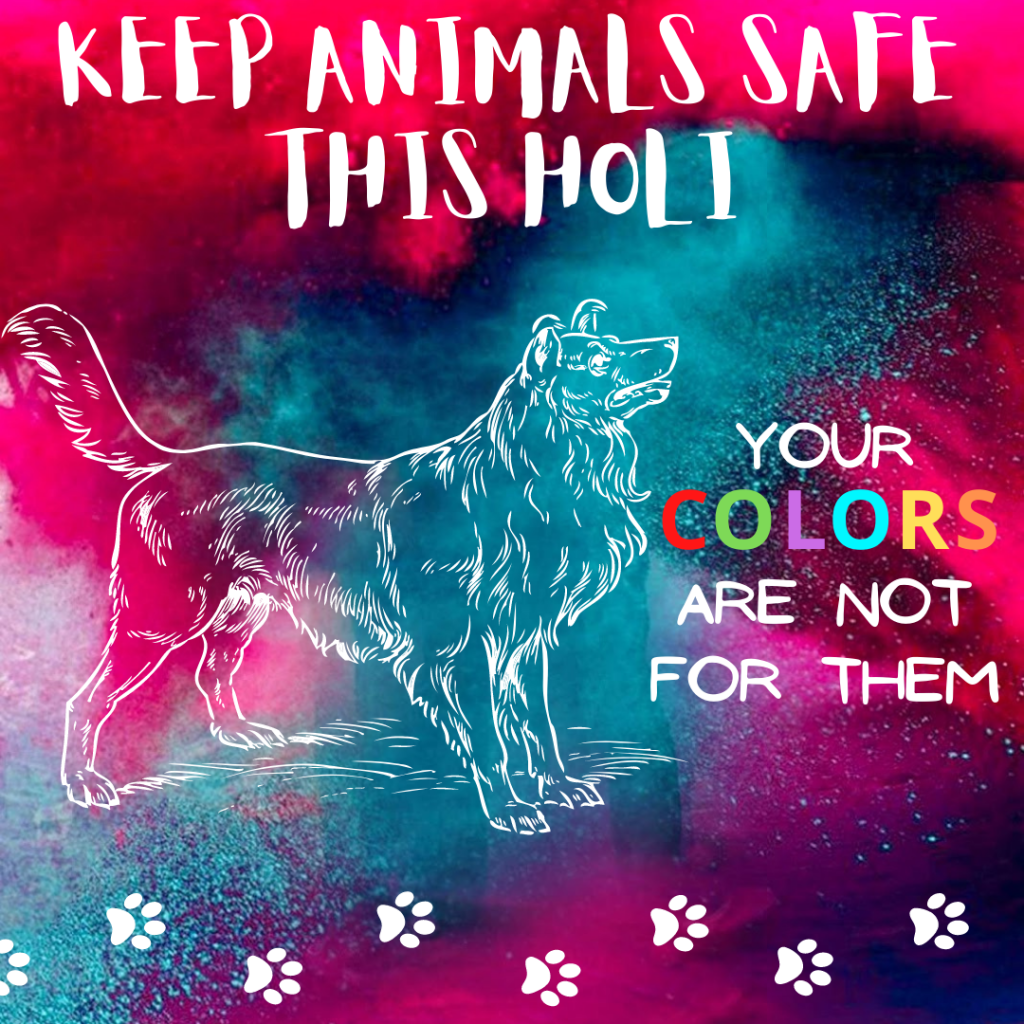
Holi, the festival of colors, is one of the most popular and widely celebrated festivals in India. While the festival of Holi is a joyful and merry day for us, it can be polar opposite for pets and strays and cause them great nuisance.
With Holi just around the corner, here are a few methods, that you can implement in order to keep your pets as well as the strays around you safe.
Why are colors harmful for Animals?
The powdered colors that we use for Holi are synthetic in nature and contain metals and dyes that are toxic. They also consist of chemical compounds like lead oxide, aluminum bromide, mercury sulphite copper sulphate, which are injurious to health.
The non-toxic colors that some of us may use contain products like cornstarch and baking powder. However it is still advisable to wear protective covering around the mouth and eyes to prevent them from getting ingested or entering the nasal canal.
Some of the colors may even include substances like malachite green and gentian violet, that have reportedly shown carcinogenic effects.

What harm can the colors cause the Animals?
The colors may remain on the coats of these animals for a long period of time.
The powders can cause irritation to the skin, which may cause these animals to scratch a place continuously, making them bleed. These colors can also cause dermatitis (inflammation of skin), rashes, itches, and allergies of the skin. You may observe an excessive amount of hair fall in a short period of time.
Animals often lick the colors to clean them off their coats, causing them to ingest some. Colored water, when swallowed, can be very harmful for their health. Since the colors contain the metal Lead, these actions can cause lead toxicity (also known as Plumbism) in the animals, which will cause serious poisoning in their bodies.
Ingestion of colors can also cause health problems like erosion of the intestinal lining, anorexia(loss of appetite), vomiting and diarrhea.
If contact of the colors with eyes ensues, it can cause irritation and even blindness in some cases.

What can you do to prevent this?
There are a few simple steps you can follow to prevent your pets and the stray animals from harm.
- If you have a pet, keep it inside a closed room. Make sure they do not step out in a place where the celebrations are going on to prevent them from accidently get colored amongst the festivities.
- DO NOT let your pet, or any other animal near sweets and sugary goodies. Sugar is harmful for their health.
- Educate the children in and around your society about the ill effects of coloring an animal. Warn them against throwing water balloons at the strays, as they can cause them physical injuries as well. Keep your pets away from the children.
- Talk to the watchmen of your and surrounding societies. Spread the compassion towards stray animals. Request the watchmen to assist you in preventing anyone from throwing colors on the animals. Ask them to inform you immediately if they see any animal in distress. You can seek their help in providing first aid to animals.
- Spread awareness as much as possible. Talk to all of your friends regarding this. Keep reminding people to avoid accidently coloring any animal. Share as much as you can on all social media platforms. Educate your friends and family regarding the adverse effects of colors on animals.
- Remember, that breeds with a short coat are at a greater risk than breeds with a long coat. Keep in mind that older dogs and puppies are far more vulnerable.
What should you do if your pet or stray gets covered in colors?
You can make use of the following forms of first aid.
- Wash the color off the animal using a mild shampoo and plain water. DO NOT use substances like alcohol, kerosene, or oil to clean the animal’s coats. Pay careful attention to if there’s any color in the eye or the ear. Wash the eyes with plain water.
- Watch out for health problems like rashes, red and watery eyes, vomiting, etc. keep a check on whether the animal is eating and drinking properly. Consult your vet if any of these are observed.
- Watch out for signs of poisoning such as vomiting, diarrhea, excessive drooling, and behavioral changes. If you notice any of these, contact a Vet immediately.
Let us all contribute a little to making this festival heartwarming for everybody!
Wishing you a very happy Holi from IVSA India.
